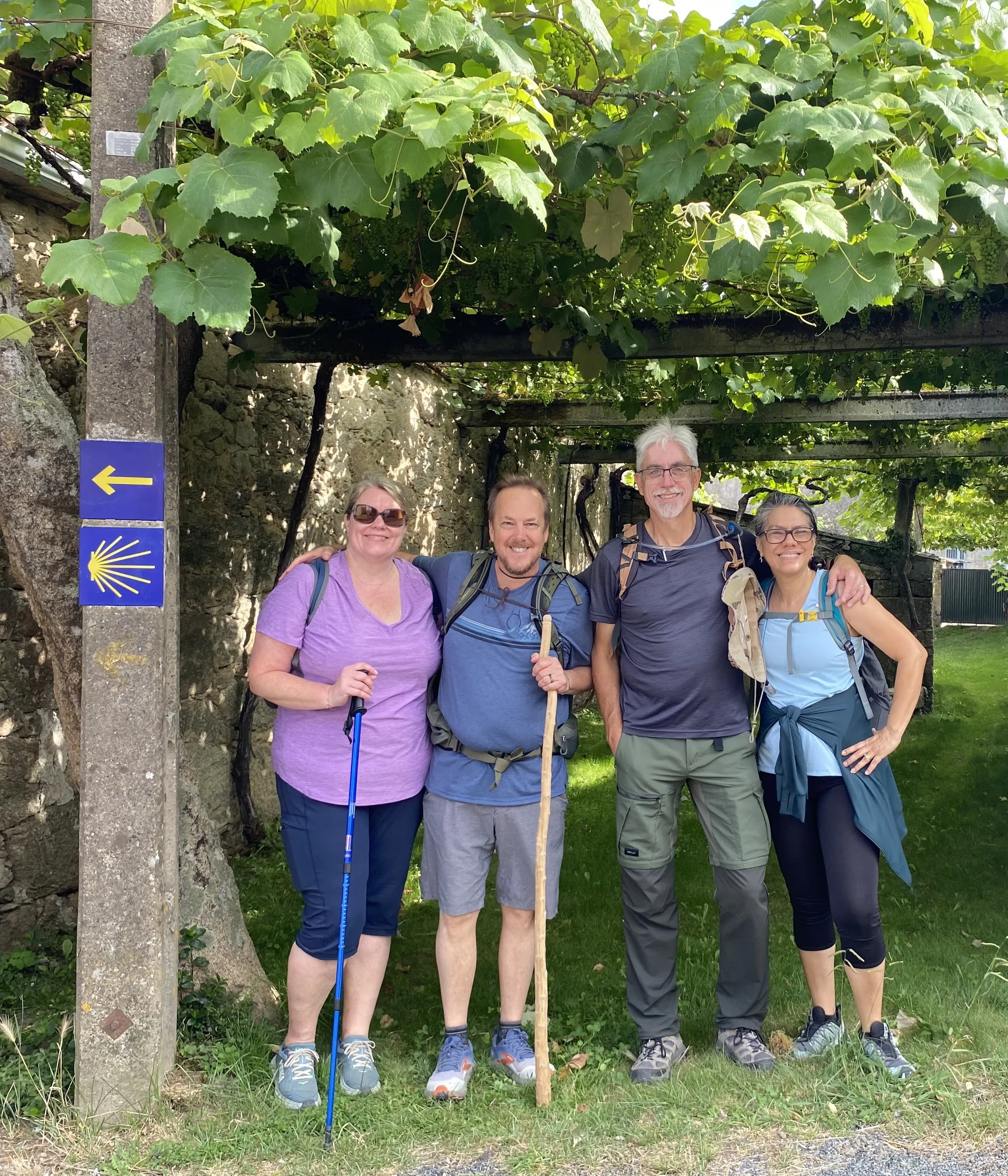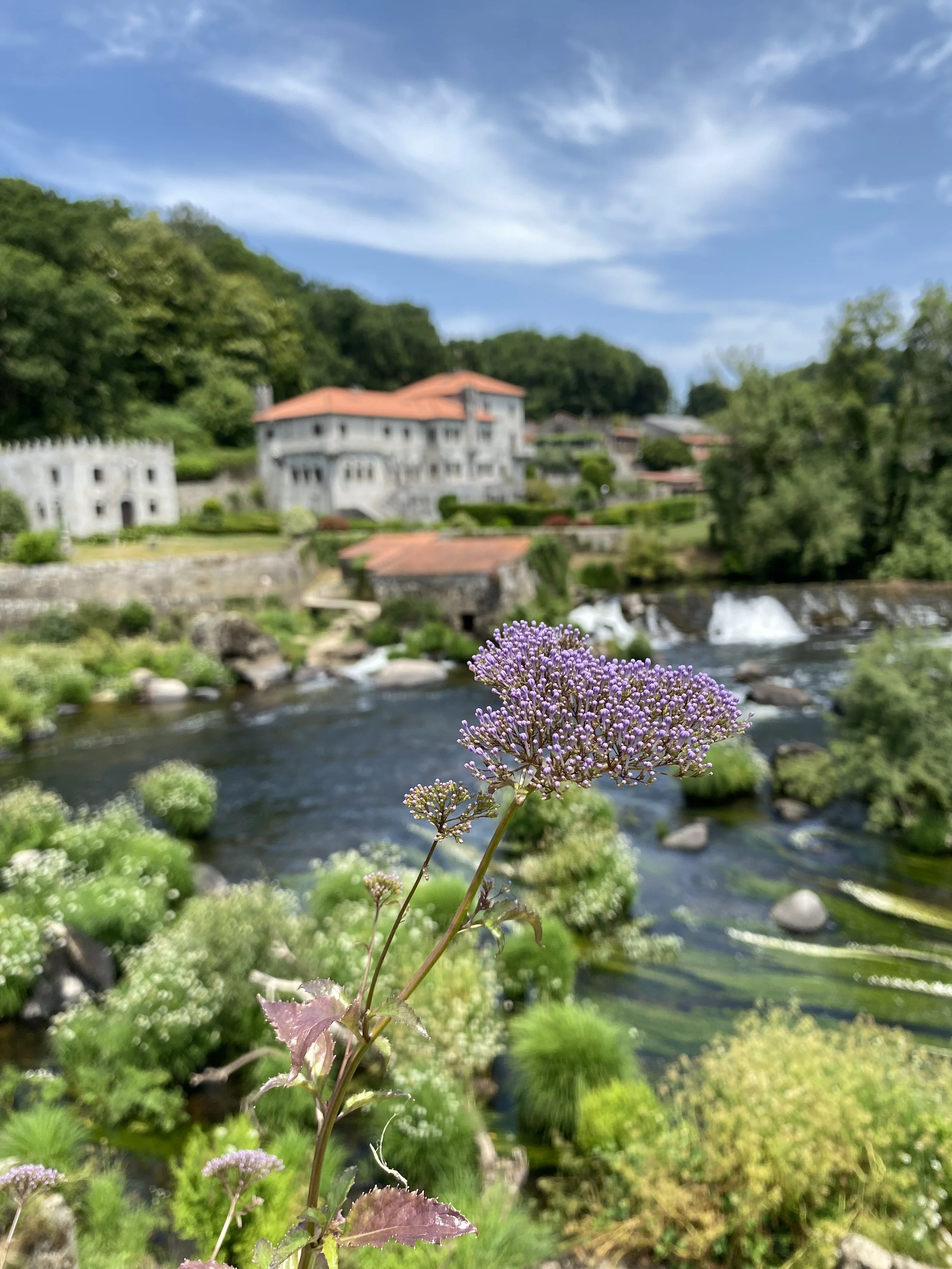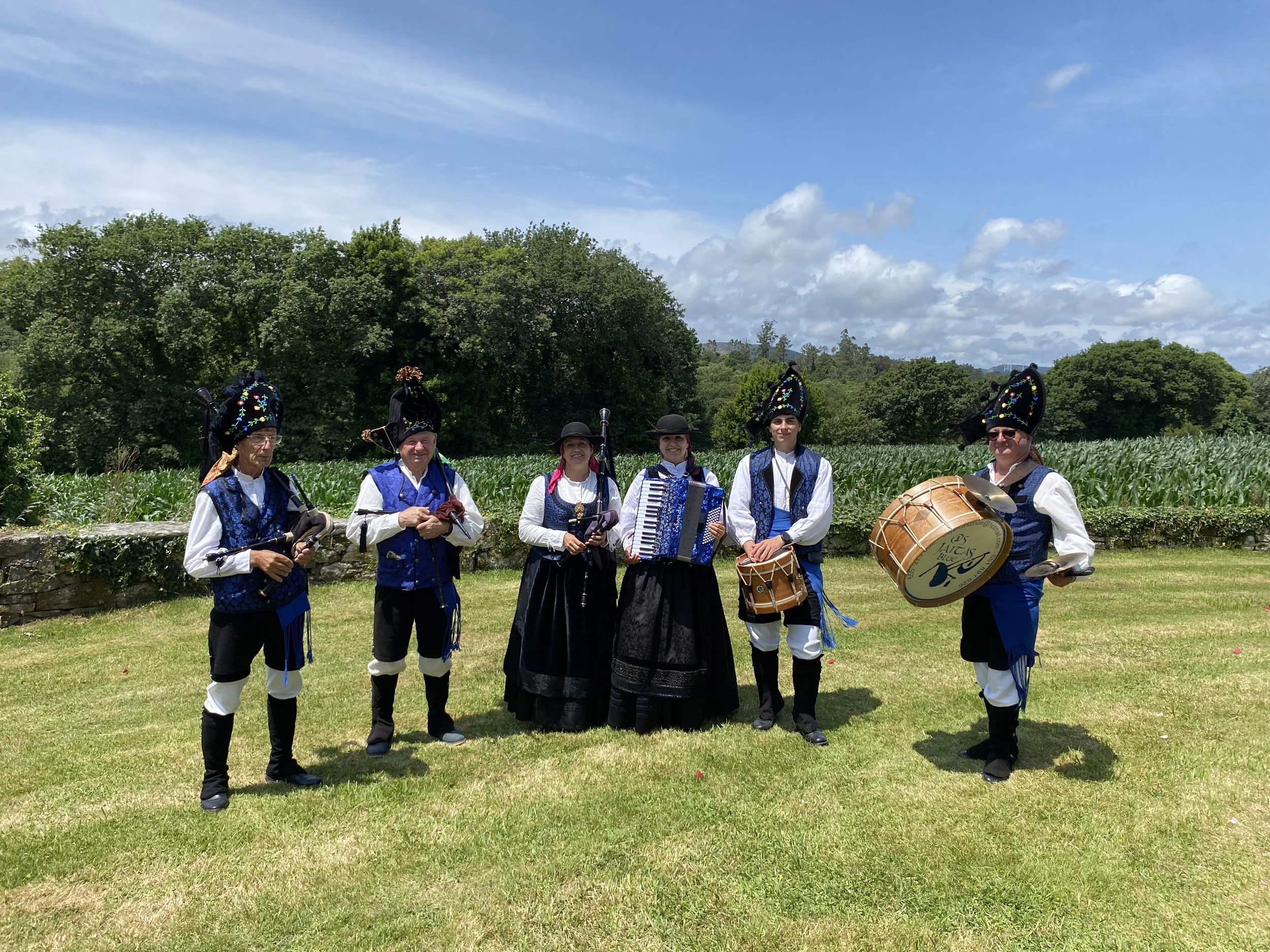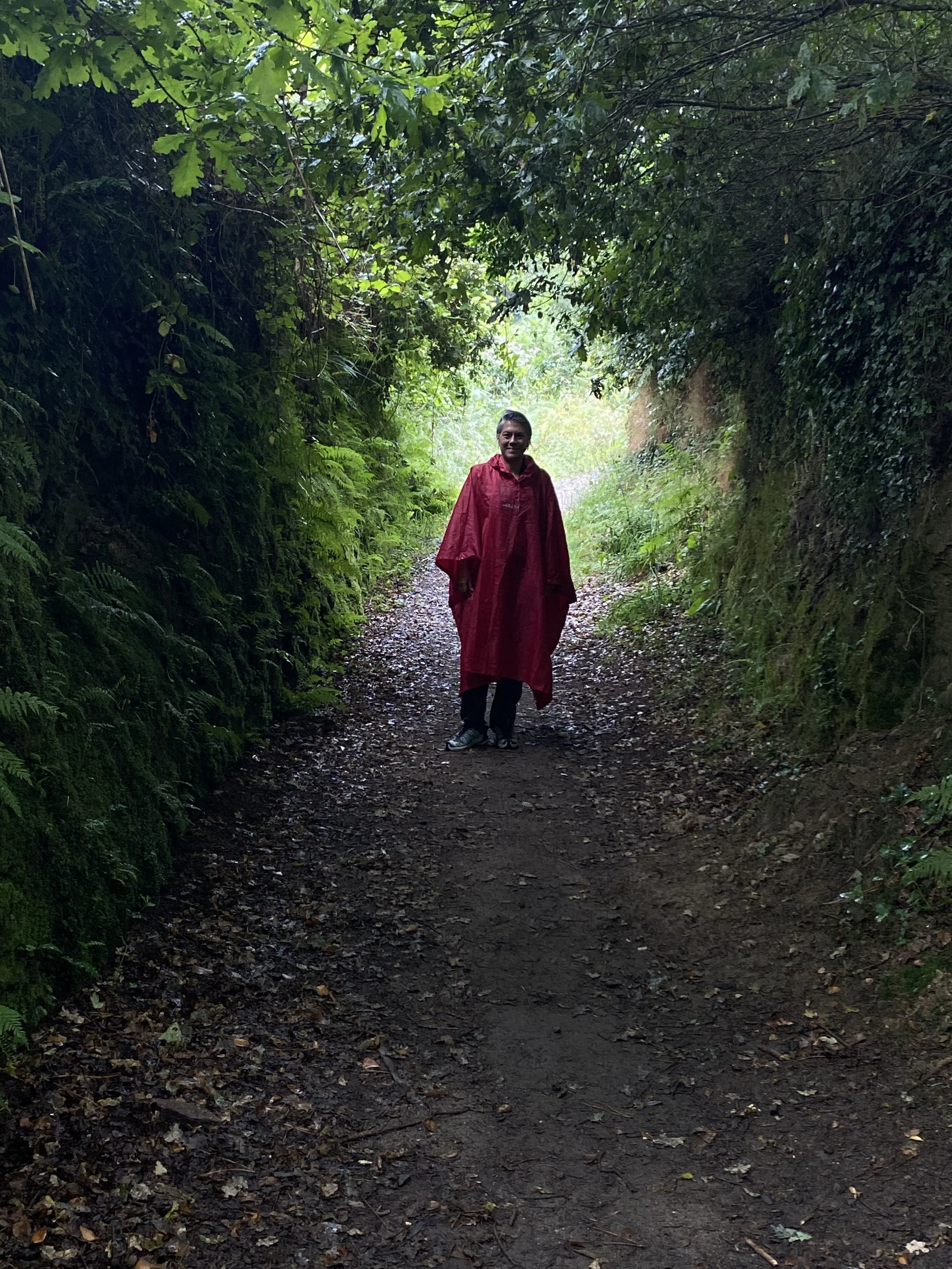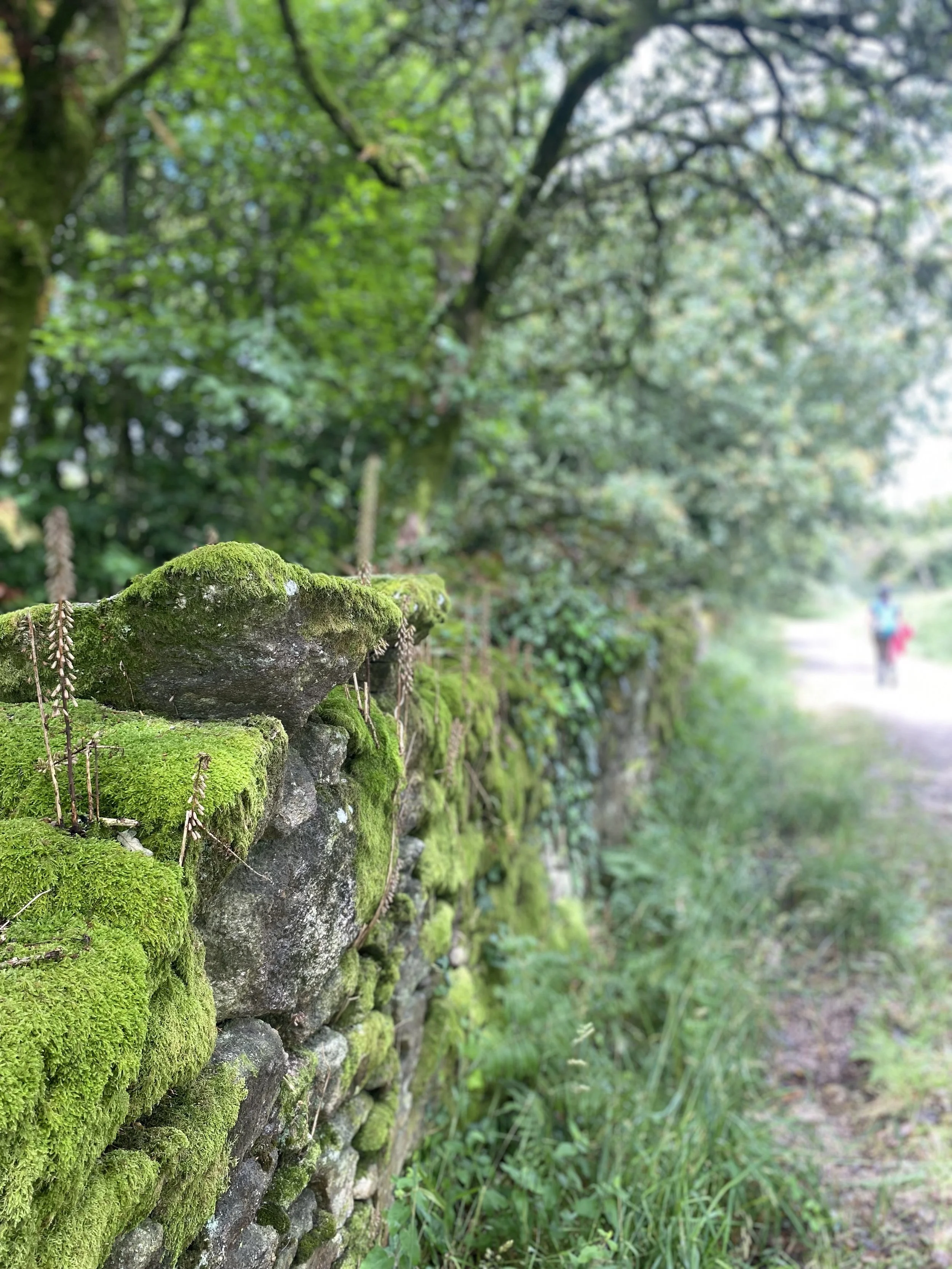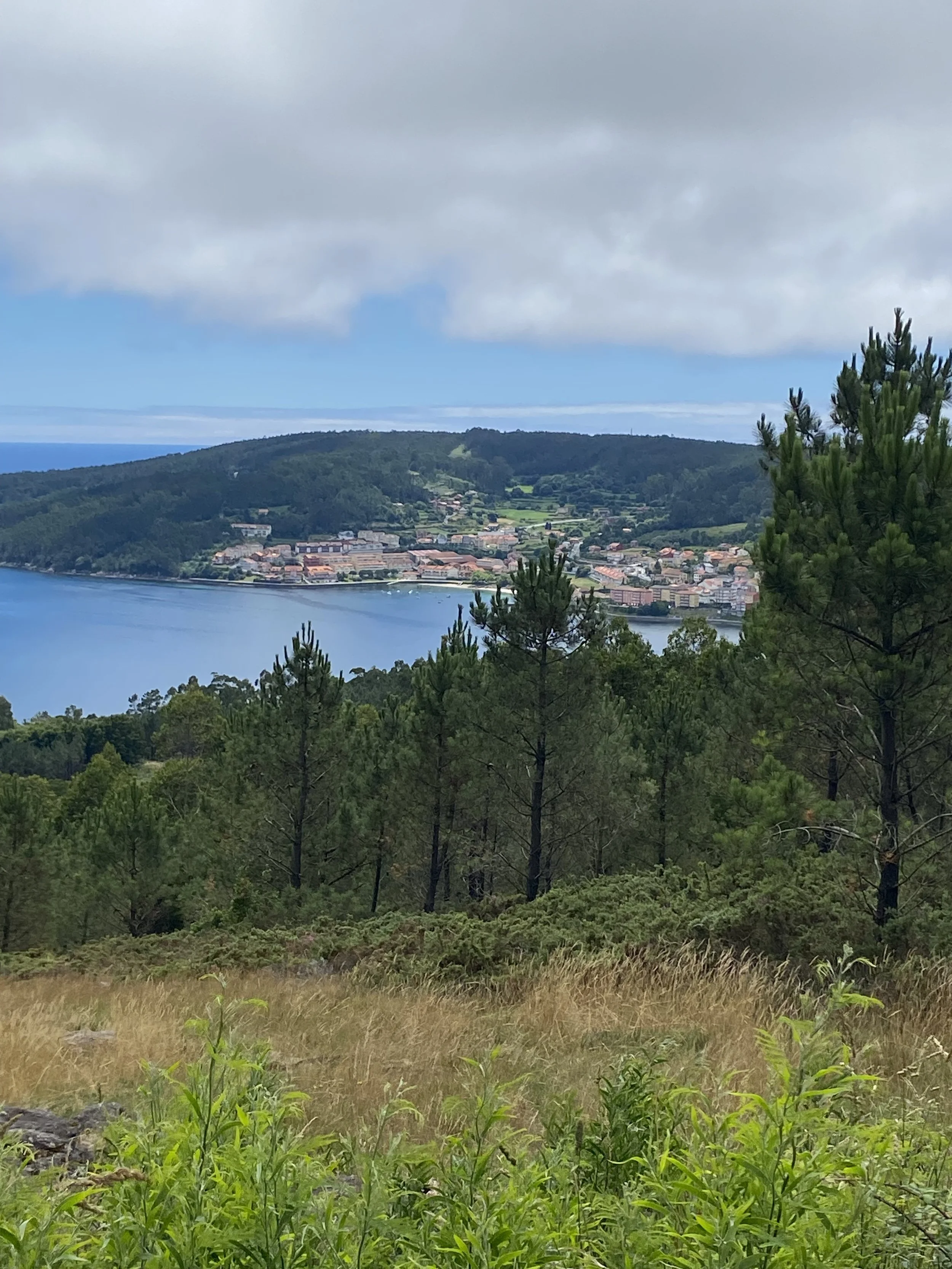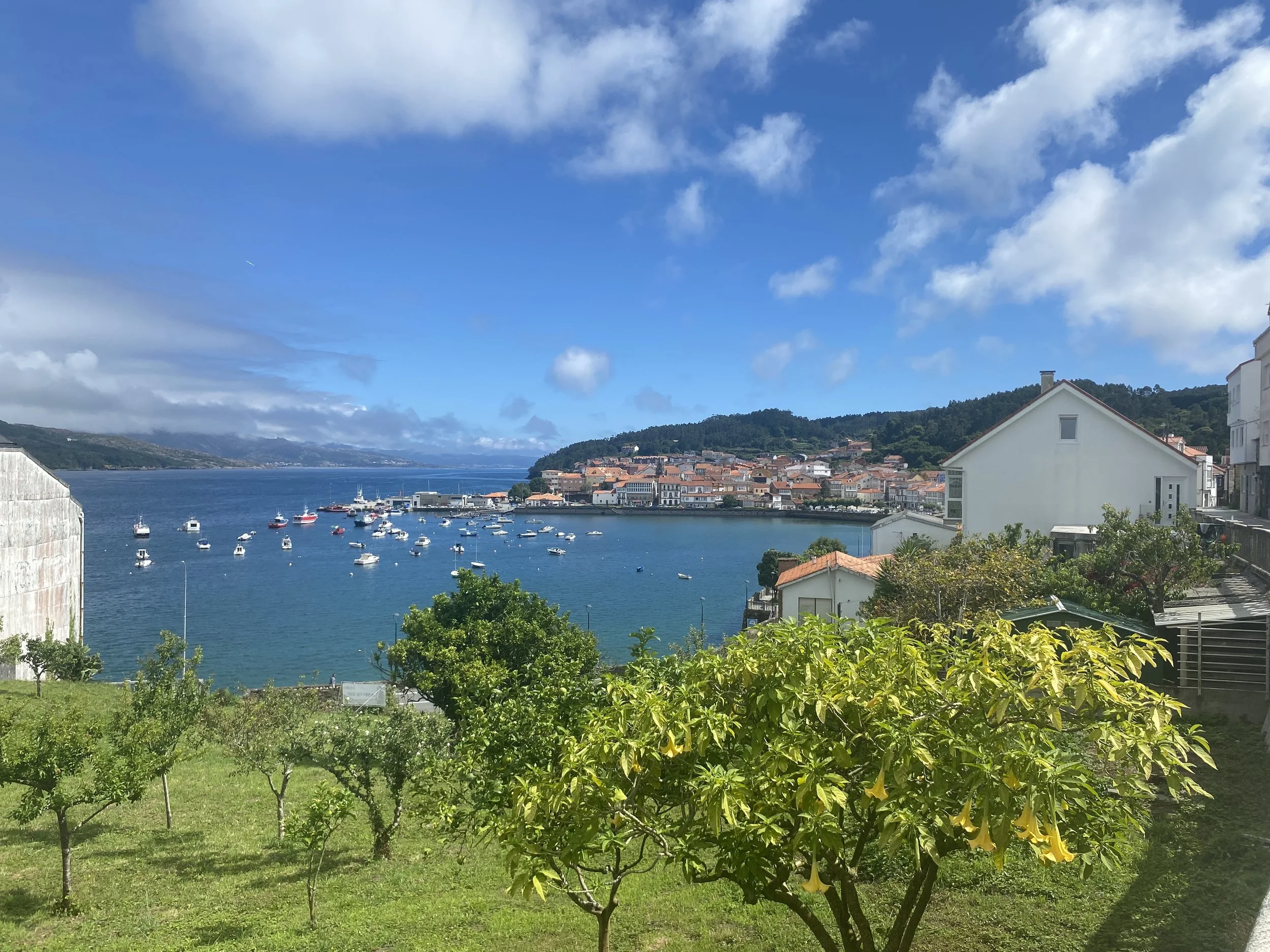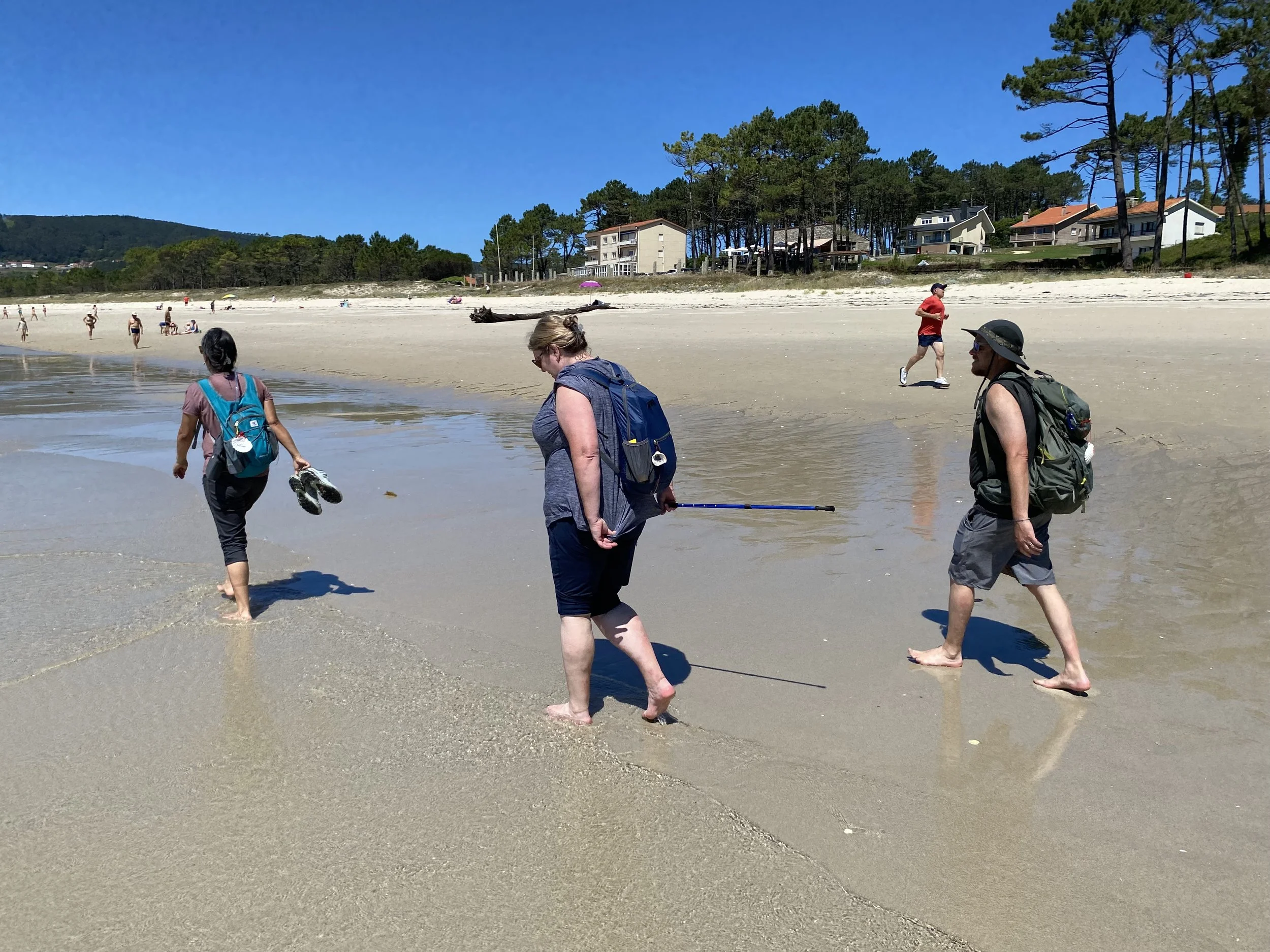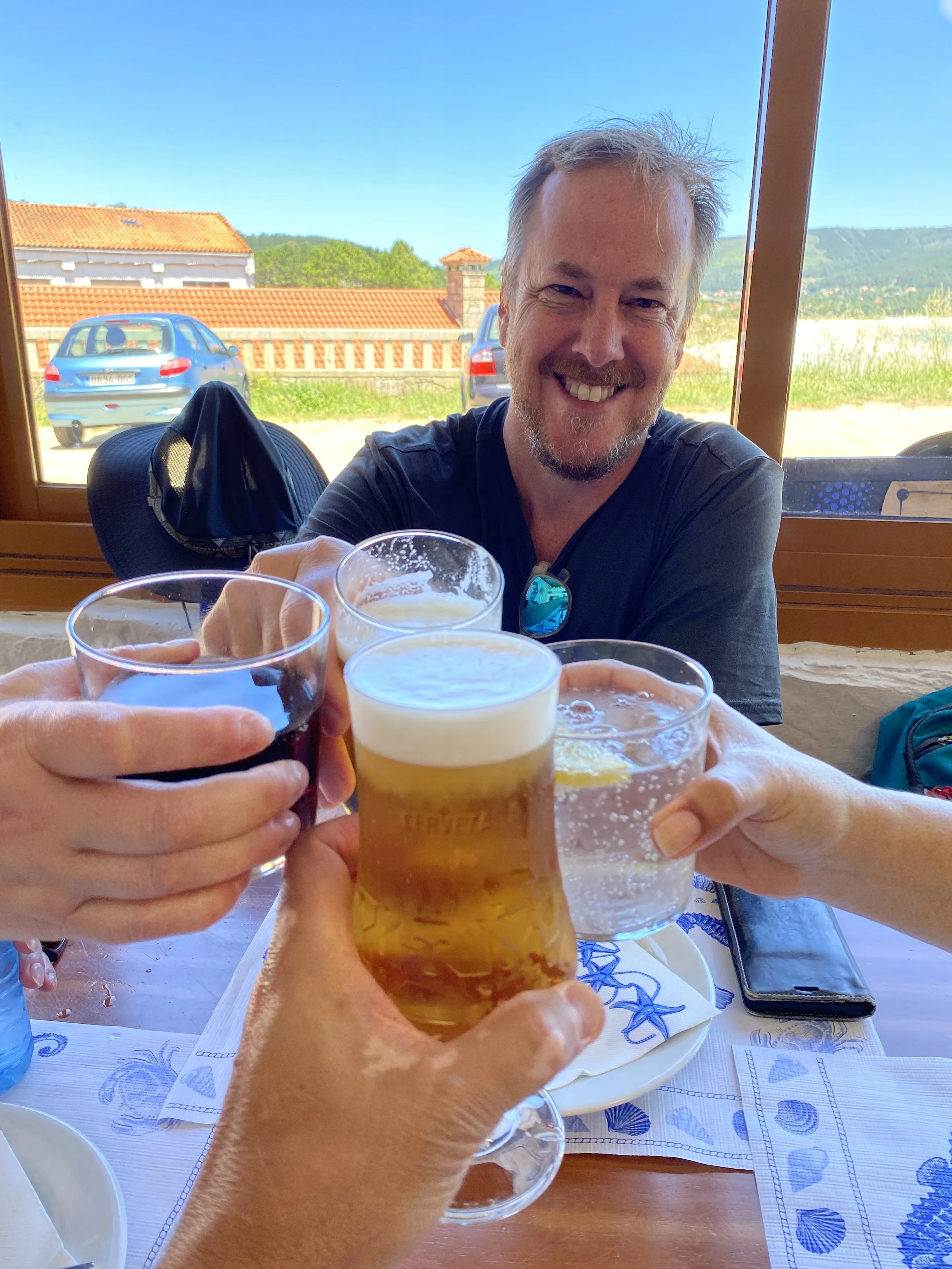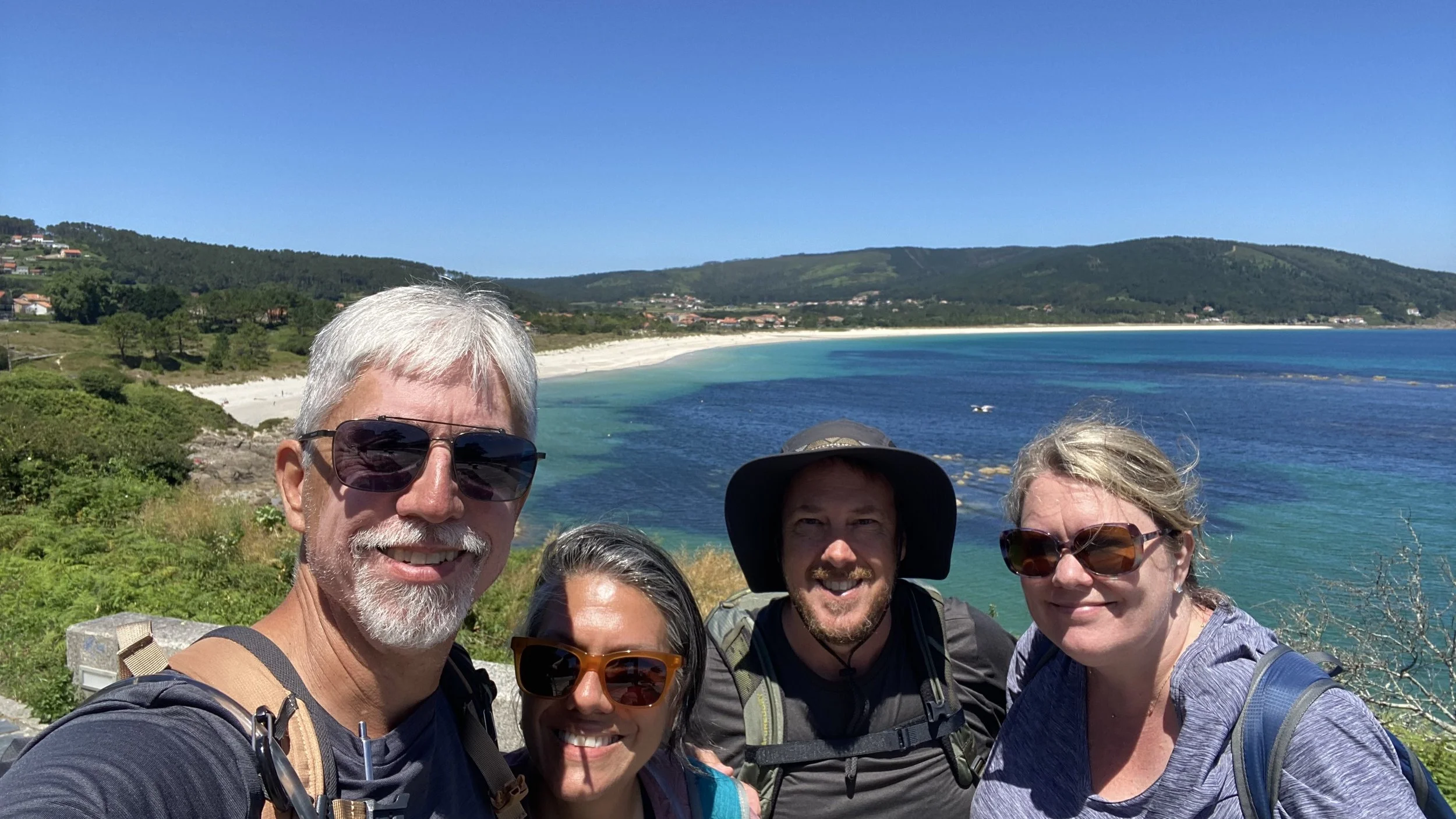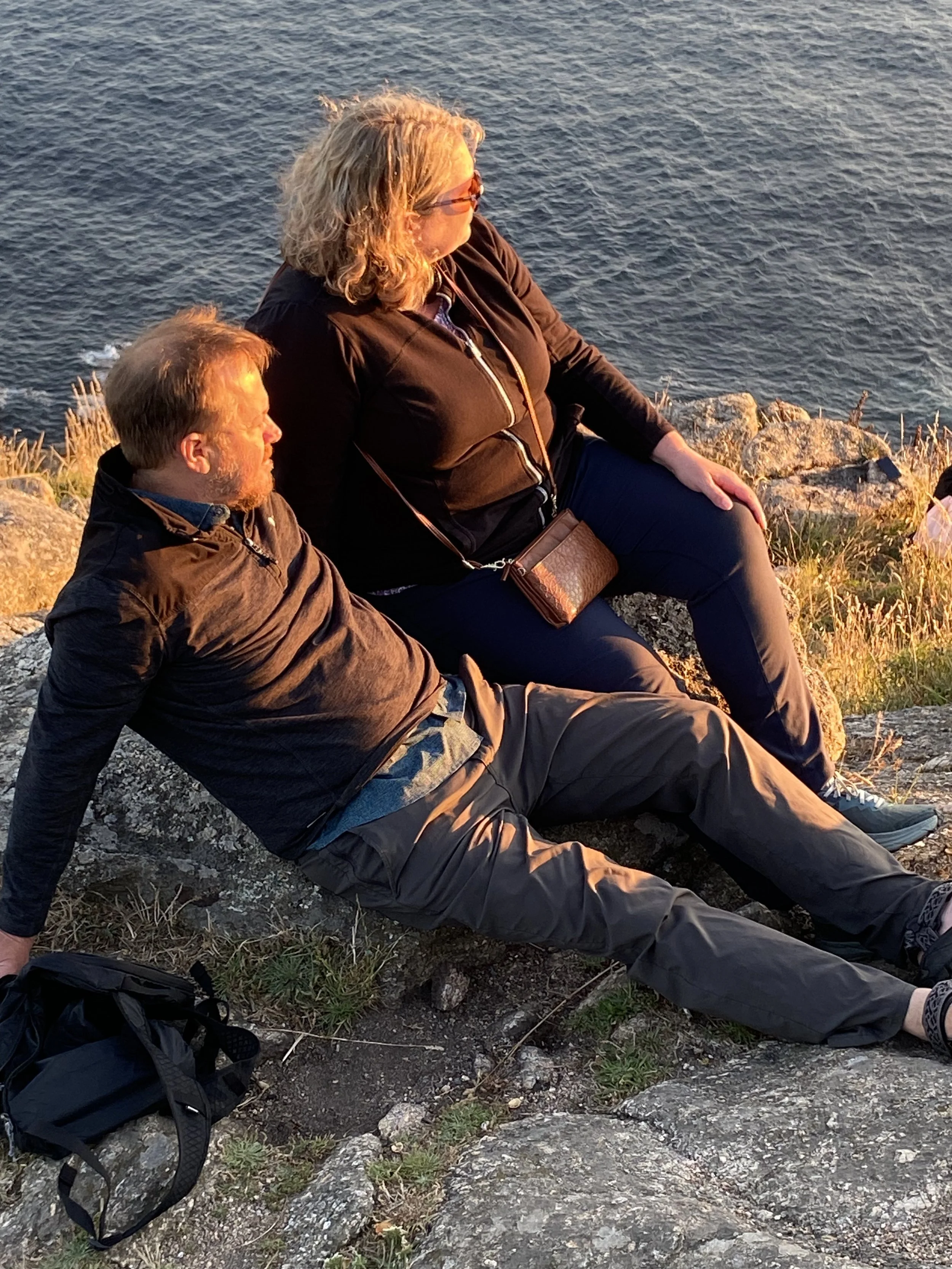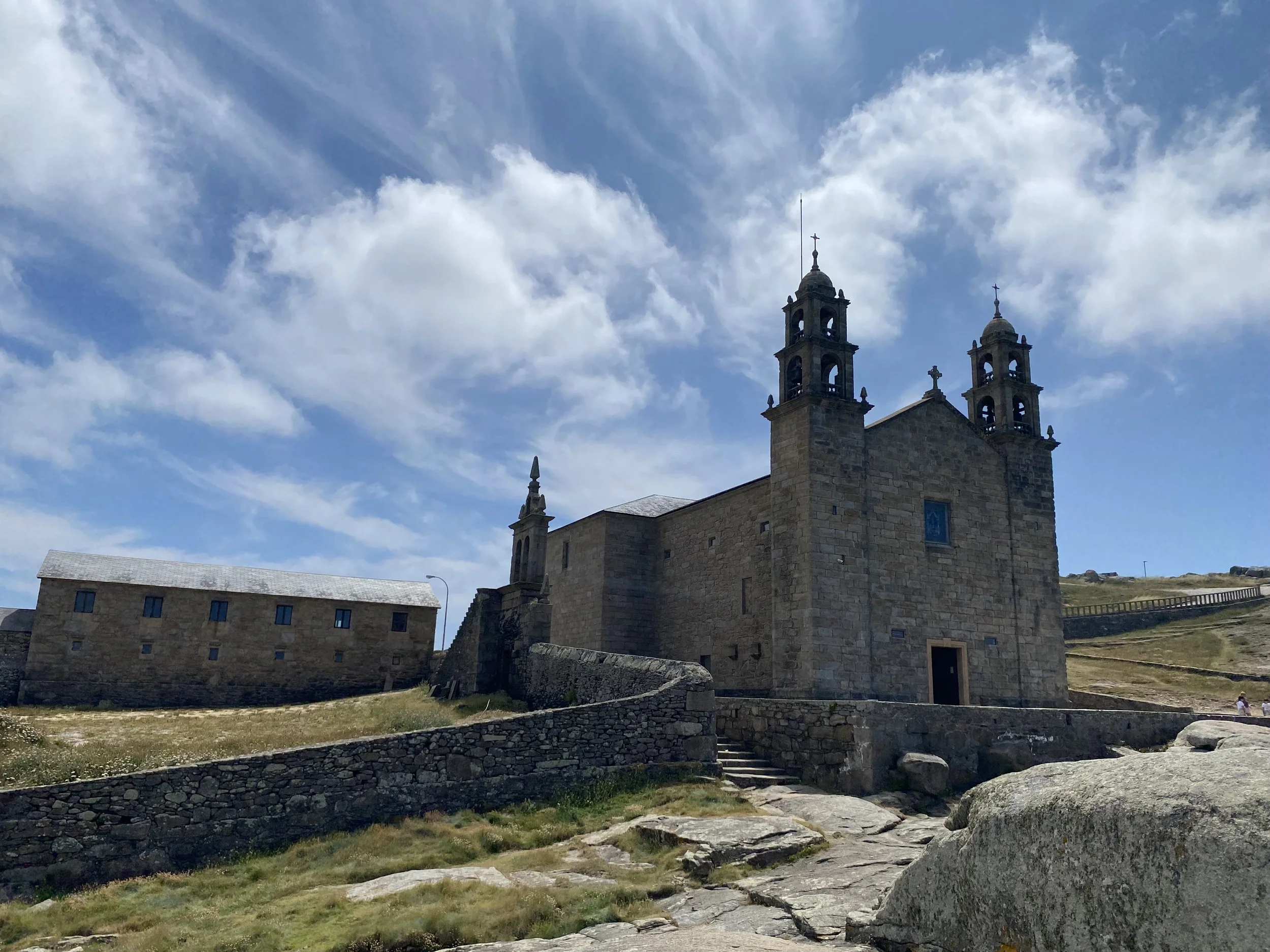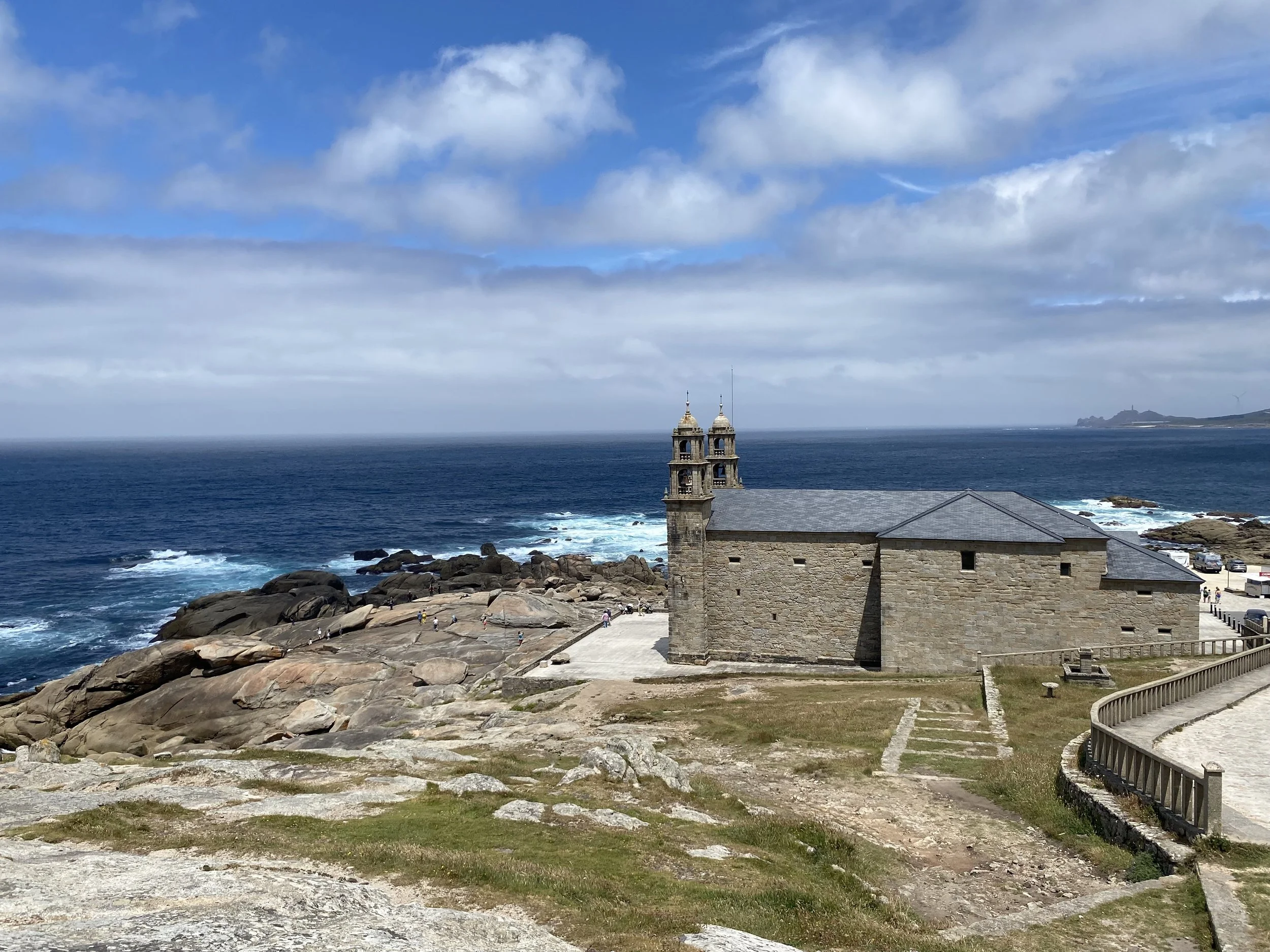Camino de Finisterre: Walking Toward the End of the World
Greg Burch
This past summer (June 2025), Christina and I, along with our teammates, Randy and Doralicia, set out for a 90 km pilgrimage to Finisterre (Finis Terrae) on the Atlantic coastline. The route was both challenging and majestic. The stretches between restaurants, housing, and more importantly restrooms, are much longer than found on some of the more popular routes, but nonetheless, we were all deeply moved by the beauty and experiences we had.
Finisterre was long considered the “end of the world” - the final destination for pilgrims who, after reaching Santiago de Compostela, continued on to the coast to conclude their long walk. It was, in many ways, a pilgrimage beyond the pilgrimage. Those who walked it weren’t just looking for a beautiful view of the ocean; they were seeking something more elusive - closure.
Closure is in short supply in our fast-paced, ever-changing world. Most of us rush from one thing to the next, rarely giving space for reflection or resolution. The Camino invites us to do the opposite—to slow down, to ponder what needs to be pondered, and to let unfinished stories find their end in God’s timing and presence. What was true for pilgrims a thousand years ago remains true today: walking creates space for healing, if we allow it.
“This is a great moment, when you see, however distant, the goal of your wandering. The thing which has been living in your imagination suddenly becomes a part of the tangible world.”
The route from Santiago de Compostela to Finisterre winds through small Galician towns like Negreira, Olveiroa, and Corcubión, each one offering its own beauty and hospitality. In Negreira, we stayed with a couple, Juan and Ámerica, who opened their home to pilgrims. Ámerica, was born in Venezuela, so we shared a special bond with her given our own time in Venezuela and the fact that all of our children were born there. That night, stories flowed easily, laughter mingled with reflection, and our hearts were strengthened for the journey ahead.
A few days later, we found ourselves walking the long stretch toward the coast, each step bringing us closer to the “end of the world.” Perhaps the hardest day was what we called our “day of sacrifice.” We all carried a small crucifix with us on this day - a symbol of Christ’s suffering and the cost of love. It turned out to be the most physically challenging day for me. I battled stomach pain so intense that every step became an act of will. As I gripped the crucifix, I meditated on the pain Jesus bore, the frequent pains and burdens in life and the mystery of redemptive suffering. The Camino has a way of pulling hidden burdens to the surface - physical, emotional, and spiritual - and inviting you to walk through them rather than around them. Some lessons unfold only with time.
The Gift of Closure
For me, closure came quietly, almost imperceptibly, as we neared Finisterre. The Camino doesn’t often give you tidy answers, but it does give you space to breathe, to remember, to grieve, and to release.
I am learning that closure isn’t always about finishing something - it’s about acknowledging it. On this pilgrimage, I carried several symbolic items representing things I needed to let go of or to better understand. One of them was a photo of my colleague Karl, a fellow seminary professor who had passed away from cancer just weeks before we left. Karl and I had talked about walking the Camino together one day. That day never came.
As I packed for the trip, I tucked Karl’s photo into my backpack. I didn’t fully know why at the time, perhaps I just wanted him with me, in some way, on this journey we had once imagined together. When we reached the beach at Finisterre, I sat on the sand, the Atlantic stretching endlessly before me, and took out Karl’s photo. The waves crashed, the wind blew cold, and I whispered a prayer of gratitude - for his friendship, his faith, and the reminder that all pilgrimages, including life itself, eventually come to an end.
In that moment, closure didn’t mean forgetting or moving on. It meant honoring what was, giving thanks for what had been, and entrusting what remains unfinished to God’s care.
Finisterre, “the end of the world,” became for me a beginning of sorts. A reminder that every ending has the potential for renewal.

